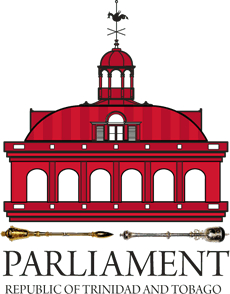The Bacteriological (Biological) and Toxin Weapons Act
The House of Representatives will soon begin debate on The Bacteriological (Biological) and Toxin Weapons (No 2) Bill, 2011.
The full text of the Bill is available in PDF format on this website, you can download it via this link . You may also place your comments directly on this Bill page, which can be accessed here.
The following is a brief explanation of some aspects of the Bill
What are bacteriological (biological) and toxin weapons?
Bacteriological (Biological) and Toxin weapons deliver toxins and microorganisms, such as viruses, fungi and bacteria, so as to deliberately inflict disease among people, animals, and agriculture. Biological attacks can result in the destruction of crops, temporary discomfort or illness, and in extreme cases, death.
The method of use of a biological weapon depends on several factors. These include the agent itself, its preparation, its durability in the environment, and route of infection. Some agents can be disbursed as an aerosol, which can be inhaled or can infect a susceptible spot on the skin, such as a cut or wound. Attackers can also contaminate food or water with some agents. It is also possible to use live, infected carriers of disease (insects, rodents, ticks, etc.) or suspensions and powders (anthrax).
Common examples of bacteriological agents and toxins
Ebola, natural smallpox, anthrax, tularemia, glanders, melioidosis, brucellosis, cholera, Rocky Mountain spotted fever, several types of American equine encephalomyelitis, yellow fever, Q fever, deep mycoses, and botulinus toxin. Among those intended to affect animals are the causative agents of foot-and-mouth disease, cattle plague, anthrax, African hog fever, and brucellosis
Toxins consist of Nerve Agents, Mustard Agents, Hydrogen Cyanide, Tear Gases, Arsines, Psychotomimetic Agents, Toxins and Potential CW Agents.
Among those intended to affect vegetation are the causative agents of wheat stem rust, phytophthora of potatoes, and rice blast are all biological and toxin in nature.
In this Act biological agents are described as any microbial, infectious substance or virus that can cause
- death, disease or other biological malfunction in a human, animal, plant or other living organism
- deterioration of food, water equipment, supplies or other material of any kind or
- deleterious alteration of the environment.
Why do we need to pass this law?
The 1972 Convention on the Prohibition of the Development, Production and Stockpiling of Bacteriological (Biological) and Toxin Weapons and on their destruction restricts countries from developing, producing, stockpiling, or acquiring and retaining biological agents, weapons, and equipment outside of peaceful purposes. It also bans weapons, equipment or means of delivery designed to use such agents or toxins for hostile purposes or in armed conflict. Additionally, recent advances in biotechnology have made it easier to develop dangerous viruses, bacteria, and toxins with fewer resources. This has increased concerns that individuals and groups could resort to bioterrorism to attack other countries. Trinidad and Tobago acceded to this convention on July 19, 2007.
What are the key features of this proposed legislation?
- Gives legal effect to the Convention on the Prohibition of the Development, Production and Stockpiling of Bacteriological (Biological) and Toxin Weapons and on their Destruction in Trinidad and Tobago
- Establishes a Bacteriological and Toxin Weapons Committee to :
- monitor the implementation of the Act
- coordinate of all activities by relevant agencies associated with enforcing regulations
- advise the Minister on issues such as the drafting of regulations
- Empowers a Magistrate to authorize a police officer to search any:
- Building
- Place
- Vessel
- Aircraft
- Carriage
- Box
- Motor vehicle
- Any other conveyance
- Imposes penalties for:
- Obstruction
- Refusal to comply
- Making false statements
- Interfering with biological agents or toxins
- Failure to safeguard biological agents or toxins
- Applies to citizens of Trinidad and Tobago while outside of Trinidad and Tobago
Important issues for consideration:
- Legislation will be inconsistent with sections 4 and 5 of the Constitution.
- Severity of the penalties contained within the Act.
- The effectiveness of the legislation will depend on a robust surveillance system to identify bioweapon attacks and accurate reports of infectious diseases and any outbreaks which may have been caused by toxins. Has the effective infrastructure, equipment and technology for disease surveillance, detection diagnosis and containment been acquired?
- Should a Code of Conduct for laboratories which work in the biological sciences be established?
- Should a Bacteriological/Biological Research Unit be established under the Act?
- The Act does not specify the requisite qualifications required for the Chairman, Deputy Chairman and other Members of Bacteriological and Toxin Weapons Committee.
- The Act applies to citizens who commit an offense while outside of the jurisdiction.
- The Act allows for the immediate seizure and disposal of any biological weapon. What systems will be put in place to ensure that such weapons are properly handled?
- What provisions will be made for the training of police officers in handling biological and toxin weapons?
Please take the opportunity to access the Bill via the link provided and feel free to submit your comments and concerns to the Parliament via our website.
